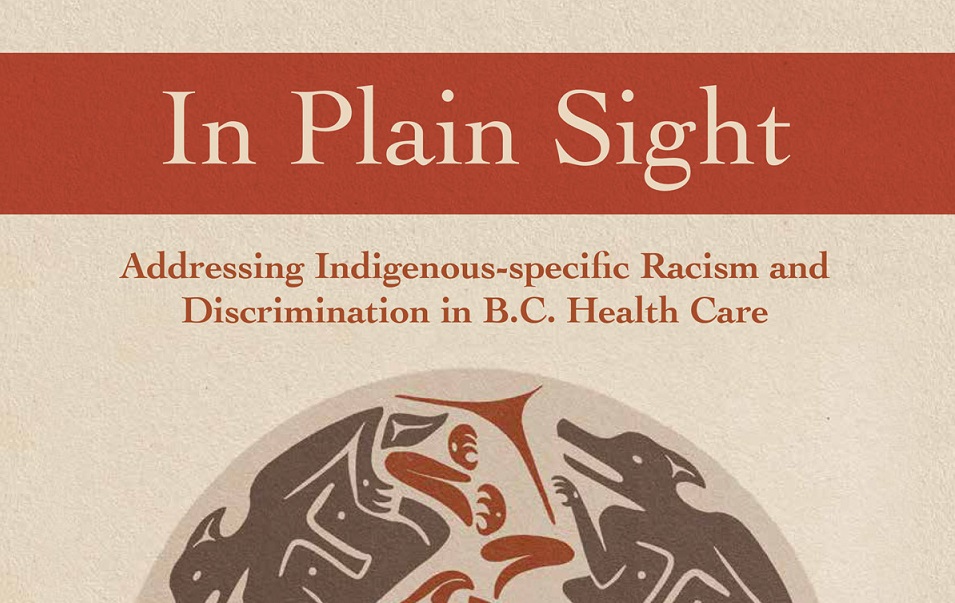The following podcast is a discussion with scientists Ray Pierotti (University of Kansas) and Tara McAllister (University of Auckland) about Indigenous Knowledge in science and the challenges that Indigenous people face in academia. Both of these topics are relevant to my day-to-day work with undergraduate science students. I have added Pierotti’s book “Indigenous Knowledge, Ecology and Evolutionary Biology” to my reading list.
Tag Archives: western science
Module 3 (Post 5) – Western Science Finally Catching up to Indigenous Knowledge?
https://www.macleans.ca/society/how-western-science-is-finally-catching-up-to-indigenous-knowledge/
This article from Macleans was an interesting read. George Nicholas from Simon Fraser University takes a look at the differences between Western and Indigenous science and Western science’s reluctance to accept traditional knowledge. He acknowledges that both sciences have value, which makes me think about how valuable it could be to incorporate multiple ways of knowing into science education.
Module 3 (Post 2) – What if Indigenous Science Were Part of the Science Curriculum?
The document linked in this blog was a very interesting read. Dr. Darren Ranco, an anthropologist and member of the Penobscot Nation, worked with a team to develop the Wabanaki Youth in Science (WaYS) program. When it was first developed in 2013, WaYS was offered to teens so they could learn about STEM and environmental stewardship. The part of the document that really piqued my interest described the expansion of the program into Maine University. There are now four courses being offered that weave together western science and Indigenous science.

Module 2 (Post 4) – Dr. Ballard Discusses Three-eyed Seeing
I came across the video in this post while further researching my previous post. It is a talk by Dr. Myrle Ballard about the concept of Three-eyed Seeing, a framework that she developed for integration of Indigenous science, Western science, and our relations.
Jessica Presta: Module 2, Post 1

As per Professor Hardman’s suggestion, I read through the In Plain Sight report as a starting place from which to launch my research from for the final project. This report was very challenging to read at times and caused me to feel a sorrow and heartache I was not expecting. The stories told by survey participants were wrought with racism and prejudice. Indigenous specific racism in healthcare across BC is indisputable. The IPS report summarized their findings into 11 categories:
- Widespread Indigenous-specific stereotyping, racism and discrimination exist in the B.C. health care system.
- Racism limits access to medical treatment and negatively affects the health and wellness of Indigenous peoples in B.C.
- Indigenous women and girls are disproportionately impacted by Indigenous-specific racism in the health care system.
- Current public health emergencies magnify racism and vulnerabilities, and disproportionately impact Indigenous peoples.
- Indigenous health care workers face racism and discrimination in their work environments.
- Current education and training programs are inadequate to address Indigenous-specific racism in health care.
- Complaints processes in the health care system do not work well for Indigenous peoples.
- Indigenous health practices and knowledge are not integrated into the health care system in a meaningful and consistent way.
- There is insufficient hard-wiring of Indigenous cultural safety throughout the B.C. health care system.
- Indigenous roles in health leadership and decision making – both through Indigenous health governance structures and the health care system as a whole – need to be strengthened.
- There is no accountability for eliminating all forms of Indigenous-specific racism in the B.C. health care system, including complaints, system-wide data, quality improvement and assurance, and monitoring of progress.
Module 1 (Post 2) – Indigenous Knowledge and Western Science
In the following video, Dr. Leroy Little Bear discusses Indigenous knowledge and western science at a talk in Banff. He is wonderful speaker and connects quantum physics to his Blackfoot knowledge. He uses humour and familiar characters (such as the Cheshire cat from Alice in Wonderland) to explain complex ideas. The most important message I took away from the talk was that Indigenous science and western science are both legitimate sciences and are really just different ways of looking at and describing natural processes.
What I liked about the video is that it is engaging and helps broaden the understanding that different ways of knowing are all valid. There are some differences in how cultures look at the world, but in the end, we are all striving to understand the same thing.